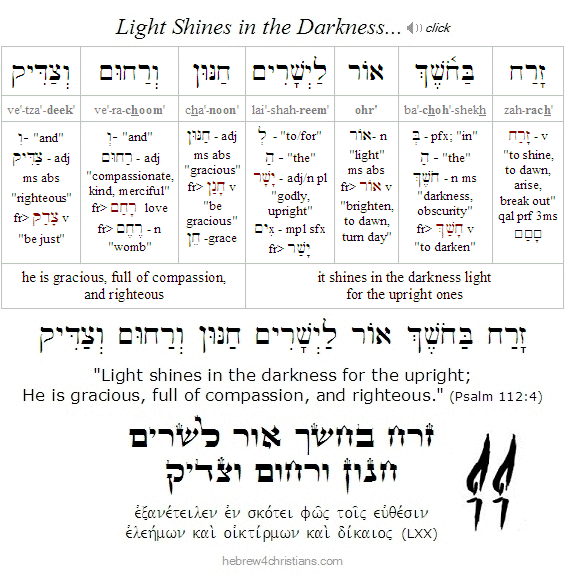|
The Mishnah (Zeraim, Peah 1:1) speaks about things that "have no measure" (i.e., things that are valuable both in this world and in the world to come). Among such things are acts of kindness (גְמִילוּת חֲסָדִים), honoring one's parents, pursuing justice and peace, and so on. The greatest of these, however is the study of Torah, or, as the Mishnah puts it: Talmud Torah keneged kulam (תַלְמוּד תּוֹרָה כְּנֶגֶד כֻּלָּם), "the study of Torah is equal to them all." According to the sages, each word of Torah you study is equal to all of the 613 commandments combined. The Orchot Tzaddikim (a popular code of ethics) adds that the reward done for mitzvah b'simchah - a commandment done with joy - is a thousand times greater than one performed unhappily. There is duty and there is joy, chaverim....
The parashah for this coming Shabbat (Ki Tavo) includes these words: "Because you did not serve the LORD your God with joyfulness and gladness of heart, because of the abundance of all things, therefore [all these curses will come upon you]..." (Deut. 28:47-48). Joy is a prerequisite for serving the LORD, and true happiness is found in the grace He supplies us to do His will. Indeed, the Greek word for joy used in the New Testament (χαρα) is related to the word for grace (χαρις), so there is a profound connection between apprehending grace and experiencing joy (Phil. 4:4).
Sometimes, of course, it is difficult to express joy, especially when we feel oppressed or saddened. The Scriptures never disavow our emotional states (read Psalm 13 or Psalm 88, for example), but an underlying note of grace is always sounded, even in painful moments and times. This is our consolation in suffering.... sorrowful yet ever rejoicing.

And this works the other way, too. Even in our most joyous occasions, such as the great simchah (happiness) of a wedding, the "glass is shattered" to remind ourselves that our eternal joy is not yet fulfilled... We live in an "already-not-yet" state of existence. Our best moments are beset with shadows; our darkest are limned with hope of the new eternal day to come. As Paul said, "I consider that the sufferings of this present time are not worth comparing with the glory that is to be revealed to us" (Rom. 8:18).
May that day dawn for us soon, chaverim...
Hebrew Lesson
Psalm 112:4 reading (click):
|




